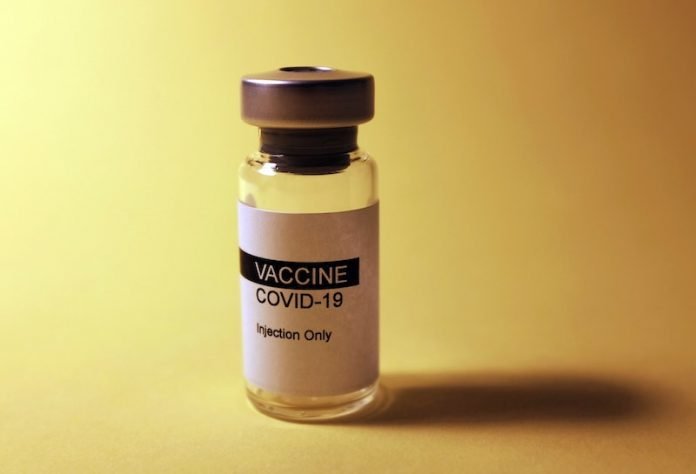
In a new study from The Ohio State University, researchers found a simple addition to injected COVID-19 vaccines could enhance their effectiveness and provide “border protection” immunity in areas like the nose and mouth to supplement antibodies in the bloodstream.
The strategy involves dampening the activity of an enzyme produced by some white blood cells when they’re responding to the vaccine challenge.
When highly active, this enzyme breaks down not just the pathogen—its job—but also degrades pieces of cells that participate in the immune response.
In the study, the team showed that an experimental COVID-19 vaccine containing a compound to inhibit the enzyme stimulated a robust antibody response that included immunity in the nose and mouth.
This ultimately provides extra protection for the airways and the gastrointestinal tract.
The new approach is to improve ‘border control.’ The benefits are broad because, in addition to providing protection in the bloodstream as most vaccines do, people also have excellent protection in the doors and windows of the body that communicate with the outside.
The experimental vaccine was produced by packaging a segment of the SARS-CoV-2 (the virus that causes COVID-19) spike protein as an antigen with the common vaccine ingredient aluminum salts and an enzyme inhibitor.
The findings suggest this affordable design could be particularly helpful in developing countries, where cold storage needed for existing vaccines is a challenge.
Alum is inexpensive to obtain or produce and can be stored at room temperature and is effective at promoting the development of a bloodstream-based antibody response to vaccination.
But it doesn’t do much for cell-mediated immunity that improves protection against viruses and bacteria that use cells to reproduce, and can’t generate a useful number of antibodies in the body’s portals of entry for most pathogens: the nose, mouth and genitourinary tract.
The researchers found that suppressing elastase in a vaccine containing alum had the dual benefits of broadening and speeding up the antibody response in the bloodstream and triggering the specific types of antibodies needed for immune protection of mucous membranes.
The experimental vaccine enhanced the magnitude of mouse antibodies, which reacted to the same section of the spike protein in the vaccine that antibodies in plasma from COVID-19 patients attach to, as well as generating antibodies in mucosal areas.
Immunized mice lacking the gene for the enzyme developed high-affinity antibodies as well.
To further test the concept, the researchers found the enzyme-suppressing compound used in the study triggered the production of specialized inflammation-regulating cells in cultures of human immune cells, showing that this strategy could improve vaccine immune responses in other species—including people.
The team says that a future injected vaccine containing an elastase inhibitor could expand SARS-CoV-2 vaccination availability across the world and even be used to boost existing vaccines.
If you care about COVID-19 vaccines, please read studies about this new vaccine can block COVID-19 and variants, plus other coronaviruses and findings of Mammograms and the COVID-19 vaccine: What you need to know.
For more information about COVID and your health, please see recent studies about COVID vaccines: some fully vaccinated people will still get infected – here’s why and results showing that many Americans take immune-weakening drugs that may lower COVID vaccine response.
The study is published in the Proceedings of the National Academy of Sciences. One author of the study is Prosper Boyaka.
Copyright © 2021 Knowridge Science Report. All rights reserved.



